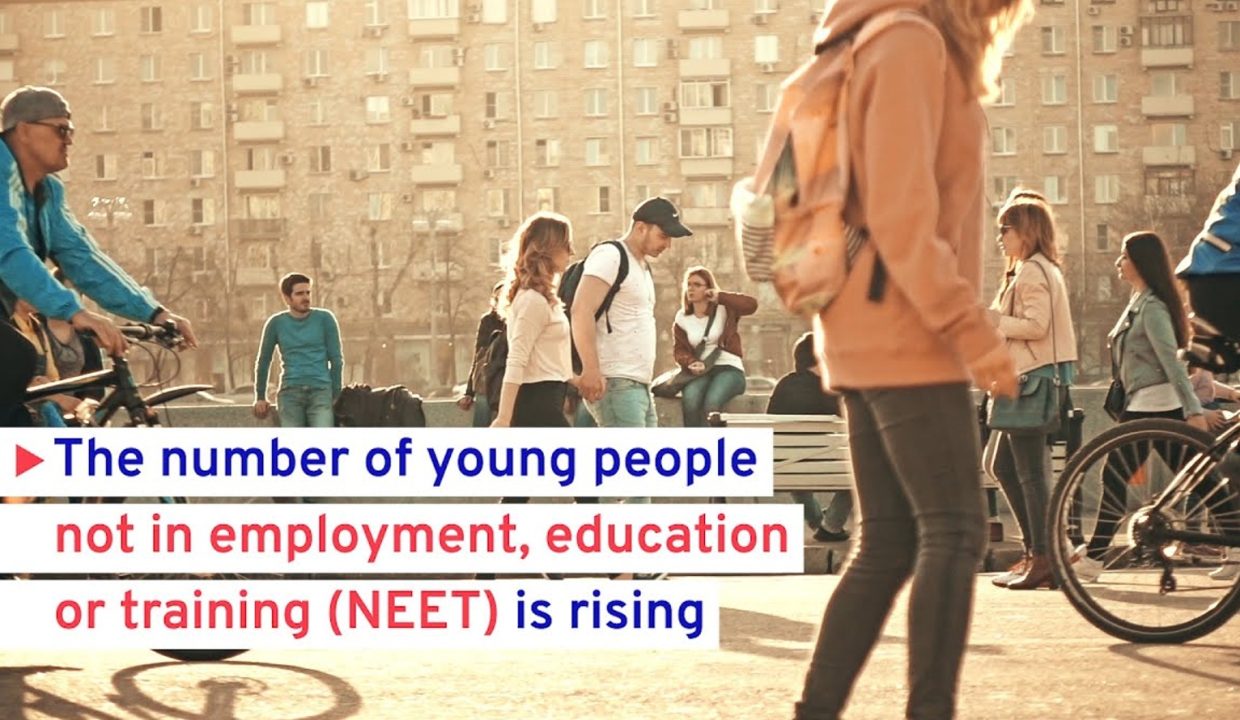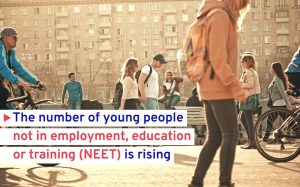
직업, 훈련, 교육을 받지 않는 청소년·청년의 증가로 우려되는 추세
Increase in youth not in jobs, training or education worrying trend
New Zealand is witnessing a concerning surge in youth unemployment, with a staggering 82,000 young individuals currently neither enrolled in school nor engaged in employment or vocational training, raising fears of escalating joblessness.
The unemployment rate among 15 to 24-year-olds stands at 12.4%, significantly higher than the national average of 4.3%. Since the latter half of 2021, New Zealand has been grappling with its highest recorded unemployment rates, with projections indicating a further increase to exceed 5%.
Paul Barber, a social policy analyst at the Salvation Army, emphasized the disproportionate impact on youth over the past year, stating, “Youth have borne the brunt of the recent rise in unemployment.”
Those classified as NEETs, shorthand for those not in education, employment, or training, have surged by 12,000 individuals from the previous year, reaching a total of 82,000. This demographic exhibits notably higher unemployment rates compared to other age groups.
Barber underscored the urgency of addressing the needs of NEET youth, highlighting their disconnection from educational and employment opportunities. Many face significant barriers to entering the workforce due to inadequate educational backgrounds, particularly during economically challenging periods.
While the onset of the COVID-19 pandemic initially saw a rise in youth employment amid labor shortages, recent trends have reversed due to increased immigration and market constraints.
However, alongside any positive impacts on youth unemployment attributable to COVID-19, there has been a concerning rise in mental health issues and psychological distress among young people.
While organizations like the Salvation Army provide support through mentoring, developmental activities, and parenting programs, resolving these challenges necessitates collaboration among educational institutions, employers, and families.
Barber emphasized the readiness of employers and vocational trainers to engage in additional education and training to support youth, noting the significant impact even a few connections can have on the futures of these young individuals.

직업, 훈련, 교육을 받지 않는 청소년·청년의 증가로 우려되는 추세
뉴질랜드에서는 현재 학교를 다니지 않고, 취업하거나 직업훈련을 받지 않는 청소년 및 청년이 82,000명에 이르는 것으로 확인되어, 실업률 상승이 우려되고 있다.
15~24세의 실업률이 12.4%로 나타나면서, 이는 전체 실업률 4.3%에 비해 높은 수치를 기록하고 있다. 지난 2021년 중반 이후 뉴질랜드 전체 실업률은 역대 최고치를 기록했으며, 앞으로 5%를 넘어 상승할 것으로 예상된다.
이러한 뉴질랜드의 청소년 및 청년 실업률 상황에 대해 구세군(Salvation Army)의 사회 정책 분석가인 폴 바버(Paul Barber)는 “특히 지난 1년 동안 청소년과 청년들이 가장 큰 영향을 받고 있다”고 설명했다.
니트족(NEET)으로 알려진 교육, 취업, 직업훈련을 받지 않는 이들은 작년 대비 12,000명이 늘어난 82,000명으로 집계되었다. 이는 다른 연령층에 비해 상대적으로 높은 실업률을 보여주고 있다.
바버는 “니트족 청소년 및 청년들은 우리가 우선적으로 대응해야 할 그룹이다”라며 “이들은 학교나 직장, 심지어는 직업 훈련과의 연결이 없는 상태로 지낸다”고 강조했다.
특히 이들이 취업의 중요한 단계에 이르면서 교육이 부족한 경우도 많아, 경제적으로 어려운 시기에 가장 큰 타격을 받게 된다.
코로나19로 인한 노동력 부족 시기에는 청소년과 청년들의 취업률이 상승하고 실업률이 낮았으나, 최근의 이민자 유입과 노동 시장의 압축으로 이러한 추세가 역전되고 있다.
그러나 코로나19가 청년 실업률에 긍정적인 영향을 미친 것도 있지만, 정신 건강 문제와 심리적 압박이 급증한 것으로 나타났다.
구세군은 청소년 멘토링, 개발 활동, 육아 프로그램 등을 통해 청소년 및 청년들에게 지원을 제공하고 있지만, 이를 해결하기 위해서는 교육 기관, 고용주, 가족 등 모든 이해관계자의 협력이 필요하다.
바버는 “고용주와 직업 훈련자는 추가적인 교육과 훈련을 통해 이들과 함께 일할 준비가 되어 있어야 한다”며 “한두 개의 연결이 이 청년들의 미래에 큰 영향을 미칠 수 있다”고 말했다.
